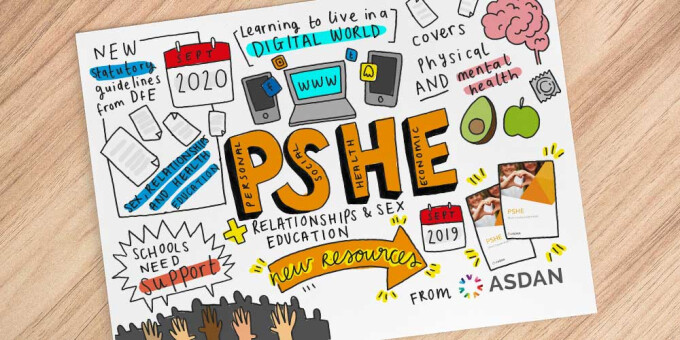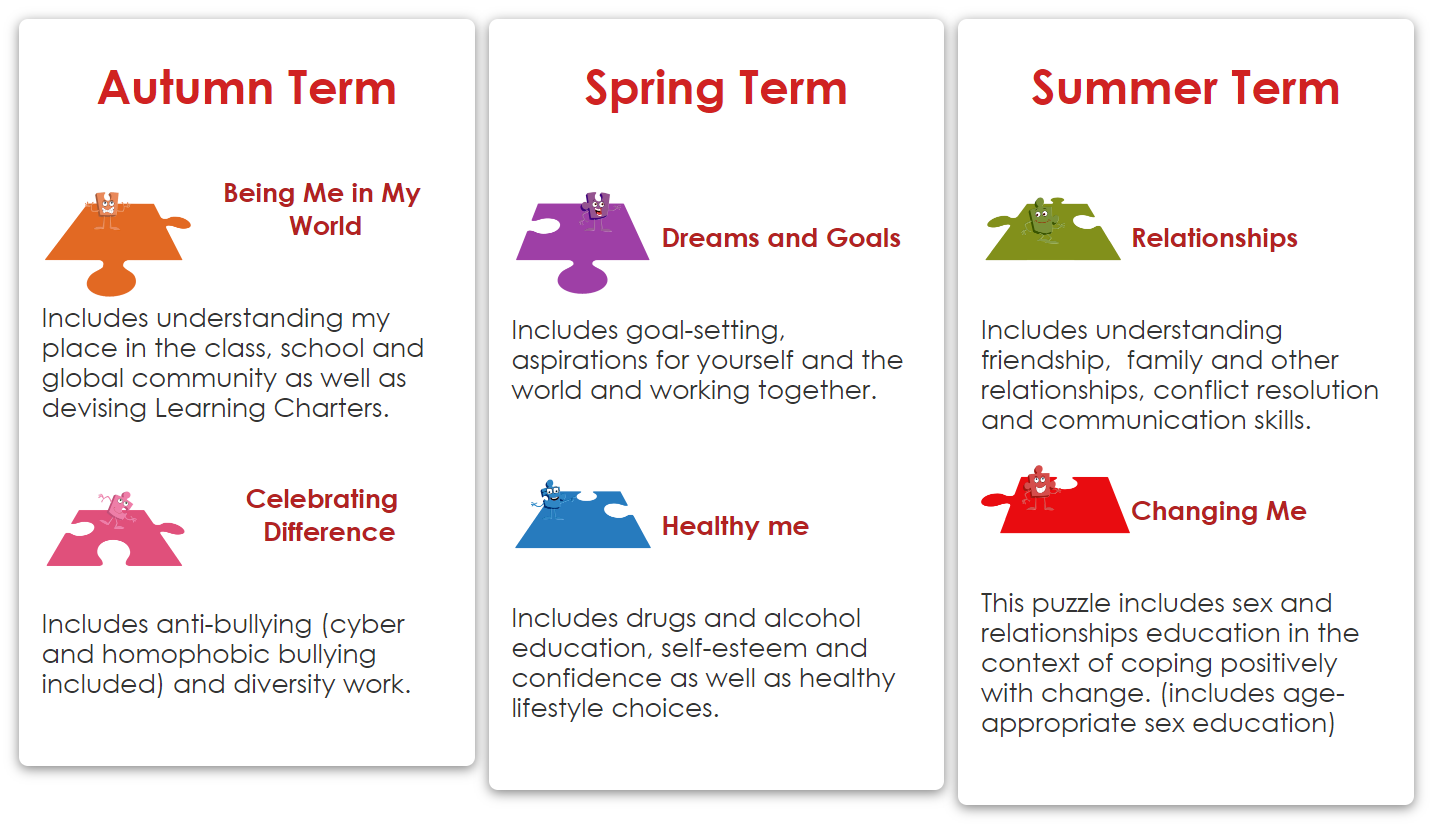Personal Social Health Education (PSHE) and Relationship and Sex Education (RSE)
PSHE at Abingdon Primary School
At Abingdon Primary School we believe that children are all individuals and therefore, we encourage our 3 core values: respect, responsibility and resilience in a happy and caring atmosphere. The teaching and learning of PSHE supports and upholds this vision. We know at Abingdon, that PSHE education cannot exist in isolation. Therefore it is part of a whole school approach and our Curriculum and Science curriculum provide a variety of opportunities for children to make links to other areas of learning and explore a wide range of social, moral, cultural and behavioural issues. Our assemblies and whole school activities help to develop the children’s learning and understanding in areas including E-Safety, Anti-Bullying and Charity work.

What is PSHE Education?
PSHE Education (Personal, Social, Health and Economic Education) is a planned programme of learning through which children and young people acquire the knowledge, understanding and skills they need to successfully manage their lives – now and in the future. As part of a whole-school approach, PSHE Education develops the qualities and attributes pupils need to thrive as individuals, family members and members of society. PSHE deals with the diverse beliefs, values and attitudes that individuals and societies hold. They help pupils to develop themselves, their understanding of the world, and their ability to communicate their feelings. PSHE helps children to acquire British values and attitudes which are necessary if they are to make sense of their experiences within school and life itself, value themselves, respect others, appreciate differences and diversity and feel confident and informed as a British citizen.
What do schools have to teach in PSHE Education?
According to the National Curriculum, every school needs to have a broad and balanced curriculum that:
• promotes the spiritual, moral, social, cultural, mental and physical development of pupils at the school;
• prepares pupils at the school for the opportunities, responsibilities and experiences of later life;
• promotes British values.
Primary schools in England also need to teach Relationships and Health Education as compulsory subjects and the Department for Education strongly recommends that they should also include age-appropriate Sex Education. Parents can withdraw children from certain RSE lessons that do not include science objectives. A letter will be sent out before these lessons are taught that must be returned to school if you are withdrawing your child or whether you are happy for them to remain in class. Please discuss any concerns with your class teacher or the PSHE lead - Miss Rowley.
Click here for National Curriculum Guidance
How do we teach PSHE Education at Abingdon?
At Abingdon, we use the Jigsaw PSHE Scheme. Jigsaw is a whole-school approach and embodies a positive philosophy and creative teaching and learning activities to nurture children’s development as compassionate and well-rounded human beings as well as building their capacity to learn. Jigsaw is a comprehensive and completely original PSHE Education programme for the whole primary school from ages 3-11. Written by teacher and psychotherapist, Jan Lever MBE (services to education) and teachers, and grounded in sound psychology, it also includes all the statutory requirements for Relationships and Health Education, and Sex Education is also included in the Changing Me Puzzle (unit).
Jigsaw has two main aims for all children:
• To build their capacity for learning
• To equip them for life
Jigsaw brings together PSHE Education, compulsory Relationships and Health Education, emotional literacy, mindfulness, social skills and spiritual development. It is designed as a whole school approach, with all year groups working on the same theme (Puzzle) at the same time at their own level. There are six Puzzles (half-term units of work) and each year group is taught one lesson per week. All lessons are delivered in an age- and stage-appropriate way so that they meet children’s needs.
There are numerous additional aspects of the Jigsaw Programme to enhance the learning experience, including the Jigsaw Friends , Jigsaw Chimes and Jigsaw Jerrie Cats (used to help and encourage calming and mindfulness practice). Every Jigsaw lesson includes mindfulness practice. Mindfulness is being able to observe your own thoughts and feelings as they happen, in the present moment, applying no judgement. Jigsaw teaches children to understand their thoughts and feelings through the Calm Me time exercises (using the Jigsaw Chime) and Pause Points (using Jigsaw Jerrie Cat). This helps to develop their awareness, and their capacity to be mindful human beings. Learning is thus enhanced as emotions and behaviour are self-regulated.

What will Jigsaw teach my child?
The overview below summarises the content in each of Jigsaw’s units of work (Puzzles):
Autumn 1 - Being Me In My World covers a wide range of topics, including a sense of belonging, welcoming others and being part of a school community, a wider community, and a global community; it also looks at children’s rights and responsibilities, working and socialising with others, and pupil voice.
Autumn 2 - Celebrating Difference focuses on similarities and differences and teaches about diversity, such as disability, racism, power, friendships, and conflict; children learn to accept everyone’s right to ‘difference’, and most year groups explore the concept of ‘normality’. Anti-bullying, including cyber and homophobic bullying, is an important aspect of this Puzzle.
Spring 1 - Dreams and Goals aims to help children think about their hopes and dreams, their goals for success, what their personal strengths are, and how to overcome challenges, using team-work skills and tasks. There is also a focus on enterprise and fundraising. Children learn about experiencing and managing feelings of pride, ambition, disappointment, success; and they get to share their aspirations, the dreams and goals of others in different cultures/countries, and their dreams for their community and the world. It’s great for children to have this experience, to think ambitiously, and to have aspirations.
Spring 2 - Healthy Me covers two main areas of health: Emotional/mental health (relaxation, being safe, friendships, mental health skills, body image, relationships with food, managing stress) and Physical health (eating a balanced diet, physical activity, rest and relaxation, keeping clean, drugs and alcohol, being safe, first aid). Most of the statutory content for Health
Education (DfE) is contained within this Puzzle.
Summer 1- Relationships starts with building a respectful relationship with self and covers topics including families, friendships, pets and animals, and love and loss. A vital part of this Puzzle is about safeguarding and keeping children safe; this links to online safety and social networking. Children learn how to deal with conflict, build assertiveness skills, and identify their own strengths and strategies for building self-esteem and resilience. They explore roles and responsibilities in families and friendship groups, and consider stereotypes.
Summer 2 - Changing Me deals with change of many types, from growing from young to old, becoming a teenager, assertiveness, puberty, self-respect and safeguarding. Each year group thinks about looking ahead, moving year groups or the transition to secondary school and how to cope positively with such changes. Life cycles and human reproduction are taught in some year groups too.

Mental Health

During their school career, some children may struggle with the management of their feelings and emotions during new or uncertain periods of time. Young Minds is a fantastic charity specifically aimed at helping young people manage their mental health. It offers advice and support on mental health in general as well as providing information on how to help children struggling with different aspects of their lives.
If you would like more information on helping young people with mental health issues please visit the Young Minds webiste below.
 Abingdon Primary School
Abingdon Primary School